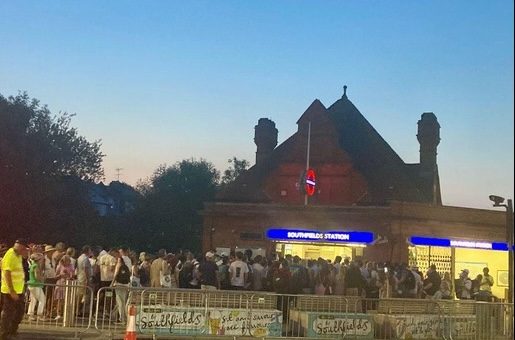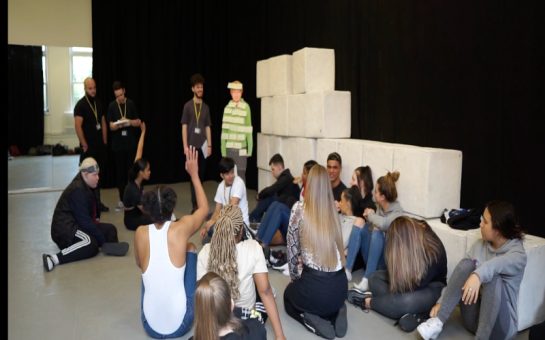Reports of child abuse in South West London have increased since 2013 with Richmond-upon-Thames detecting 130% more children, and Merton 40% fewer children at risk of serious harm.
SWL analysed the number of child protection plans per year for South West London from 2013 to 2020.
If children in England are suffering or likely to suffer from serious harm from child abuse, they are placed on a child protection plan categorised by the following forms of abuse: emotional, physical, sexual, neglect or multiple of these.
A consultant social worker with the NSPCC told SWL it is essential councils detect children suffering abuse: “Child abuse can have a really profound effect on children and young people, both immediately and into adulthood.”
Richmond-upon-Thames saw increases in protection plans for all individual categories of abuse including the highest total increase from 69 to 161, or 133%.
The number of children on plans for emotional abuse in Richmond increased from 3 in 2013 to 61 in 2020, a jump of more than 1900%.
In the same period the number of children at risk of physical abuse rose from 3 to 48, or by 1500%.
Five of South West London’s nine councils recorded an increase in the number of children on protection plans from 2013 to 2020, while Hammersmith and Fulham saw no change.
Of the other three, Lambeth saw a decrease of around 20% and Kensington and Chelsea and Merton saw decreases of more than 40%.
A Richmond council spokesperson said: “We need to be mindful of using percentages as the numbers of children included in the data are very low.”
They told SWL safeguarding measures have undergone extensive transformation since 2013, including the development of a single access point to simplify reporting.
They also highlighted changes in national procedures resulting in fewer children being categorised as at risk from multiple forms of abuse and a subsequent increase in other categories.
The spokesperson said: “Achieving for Children and the London Borough of Richmond-upon-Thames take our responsibility for the most vulnerable members of our community very seriously and will strive to continue to learn and improve services as we have done over the last seven years.”
The NSPCC social worker told SWL abuse was rising nationally before the pandemic.
Despite this Merton Council recorded a 43% decrease in protection plans from 2013 to 2020, from 162 to 91.
Merton was the only borough to record a decrease in every category of abuse, with no categories increasing or remaining the same.
In 2013, Merton tied with Richmond for the highest number of children at risk of multiple abuse forms, but recorded a fall from 40 to 0 by 2020.
Merton Council did not formally respond to requests for comment, but a media spokesperson told SWL Merton’s decrease in children on protection plans is due to their safeguarding system requiring a higher threshold of risk before a protection plan is put in place.
A consultant social worker with the NSPCC told SWL protection plans are designed to monitor risks to children and try to prevent them being removed from their home.
There are many factors in protection plan numbers fluctuating, but she said numbers can fall if children are not identified or if there are gaps in early help services which prevent children from becoming at risk of harm.
She drew particular attention to the impacts of emotional abuse and neglect.
If a child suffers neglect or emotional abuse they can be very anxious, low and suffer with self-harm and suicidal actions, as well as an inability to regulate emotions.
The social worker told SWL: “Being with other children, making friends, understanding what your teacher is saying, doing your homework can be a huge, huge struggle because the bit of their brain that needs to be online to do all of those things is struggling to just survive and make sense of their world.”
She added if children are worried or scared at home, it can make it difficult to know whether other adults in their life are safe and trustworthy.
Child abuse can continue to impact adult life, with common effects including mental health conditions such as PTSD, drug and alcohol issues and employment problems.
According to the social worker the pandemic had a huge impact on families with at-risk children as schools and support networks closed, increasing the risk to children suffering from abuse.
But she added councils and the NSPCC stepped up to try and fill the gap.
“Services such as the NSPCC and local councils are absolutely still here for children. It may have felt during covid and during lockdowns that the world stopped in lots of ways, but the message is that we are still here for children, local councils are still here for children.”
“I would really encourage that if children, young people or adults are finding they’re struggling with mental health, they do talk to someone because it would be very common to see and totally understandable.
“That is what happens after abuse and neglect.”
Children can contact the NSPCC on 0800 1111, or go online. Adults with concerns about a child can phone 0808 8005000 or email [email protected].
Merton Council has been contacted for comment.




